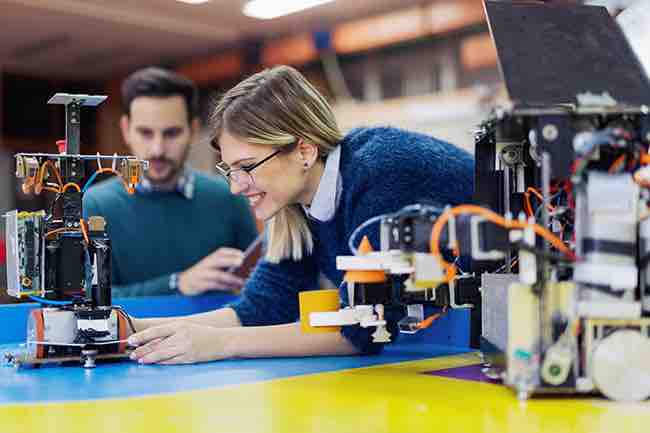Student Agency in Project-Based Learning

Student agency in project-based learning (PBL) refers to the active role students play in their own learning process. It involves students making choices, taking initiative, and being accountable for their learning outcomes. This concept is a fundamental aspect of PBL and here’s how it manifests:
- Choice and Voice: In PBL, students often have the opportunity to choose their projects or aspects of their projects, such as the topic, the research question, or the method of inquiry. This choice empowers them and gives them a voice in their learning, leading to greater engagement and motivation.
- Self-Directed Learning: Students take the lead in their learning process. They set goals, plan their work, conduct research, and determine how to present their findings. While teachers provide guidance and support, the onus is on the students to direct their learning journey.
- Critical Thinking and Problem-Solving: PBL requires students to think critically about complex problems and develop creative solutions. This process fosters independence in thinking and problem-solving, as students learn to analyze information, synthesize ideas, and evaluate outcomes.
- Reflection and Metacognition: Reflecting on their learning process is a key part of student agency in PBL. Students are encouraged to think about how they learn, what strategies work best for them, and how they can improve. This reflective practice develops metacognitive skills, helping students become more aware and in control of their learning.
- Responsibility and Accountability: Students are responsible for their learning outcomes in PBL. They must manage their time, meet deadlines, and ensure the quality of their work. This responsibility fosters a sense of ownership and accountability for their learning.
- Collaboration and Leadership: While PBL often involves collaborative work, student agency is also about taking on leadership roles within a group. Students learn to negotiate, influence, and support their peers in a shared learning experience.
- Adapting and Responding to Feedback: Agency also involves being receptive to feedback and using it constructively. Students learn to adapt their work based on input from peers, teachers, and other sources, which is a critical skill for lifelong learning.
- Real-World Connection and Relevance: PBL allows students to connect their learning to real-world contexts, making their work more meaningful and relevant. This relevance can increase student motivation and engagement, as they see the value and application of what they are learning.
In summary, student agency in PBL is about empowering students to take charge of their learning, make informed decisions, and develop skills that are essential for success in both academic and real-world settings. It represents a shift from traditional teacher-centered education to a more student-centered approach, where students are active participants in their learning journey.